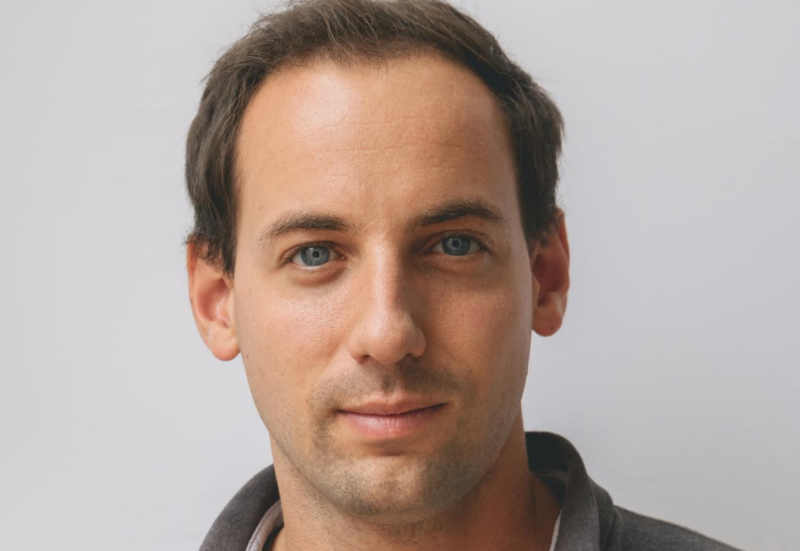Flyability, a Swiss startup, makes collision-tolerant drones built to enter difficult to access places, replacing dangerous human operations with unmanned devices. Companies in the energy, chemical, oil and gas, mining food and beverage, maritime and pharmaceuticals sectors are using its drones. Customers include Chevron, Con Edison, BP, Solvay, GE and SUEZ.
CEO Patrick Thevoz co-founded the company with his cousin, Adrien Briod, Flyability’s chief technology officer. The two started building things together as children and were eager to find a way to work together. Both attended Switzerland’s Ecole Polytechnique Federale de Lausanne (EPFL). After Briod earned an MSc in robotics at EPFL and Harvard University, he pursued a PhD at EPFL’s Laboratory of Intelligent Systems. It was there that he developed and patented novel approaches for the stabilization of flying robots in cluttered environments.
 Flyability CEO Patrick Thevoz
Flyability CEO Patrick Thevoz“When we were originally studying robotics we were disappointed by the inability of robots to gain access to complex indoor environments to obtain data so we started looking at insects as a way of tackling the challenge,” says Thevoz. Briod studied how house flies handle collisions and bounce back even after bumping into obstacles and –with the help of Thevoz -set out to develop drones that can fly full speed into any obstacle and continue flying, thanks to highly reactive flight algorithms and external cages that protect the robotics inside.
Flyability’s drones — which have been on the market for over a year- can capture data in diverse environments. The company’s drones have been used to survey glaciers 4000 meters above sea level to help rescuers search for people who have fallen into glacier crevasses and 3000 meters below sea level in Lima, Peru to inspect areas where explosives are used to mine ore.
Customers include law enforcement SWAT teams, firefighters and search and rescue operations. Flyability’s drones have also been used to inspect the inside of boilers in coal fire plants to identify problems before they break down, by breweries and pharmaceutical companies for batch inspection and by the maritime industry to ensure that ships’ cargo holds are clean before new products are loaded to avoid contamination or spoilage.
The drones can replace humans for any application that is expensive or dangerous, says Thevoz.
The company has so far raised a total of €6.5 million in angel funding and venture capital. It is currently looking to raise a new round and is interested in working with corporate venture capitalists, he says.






